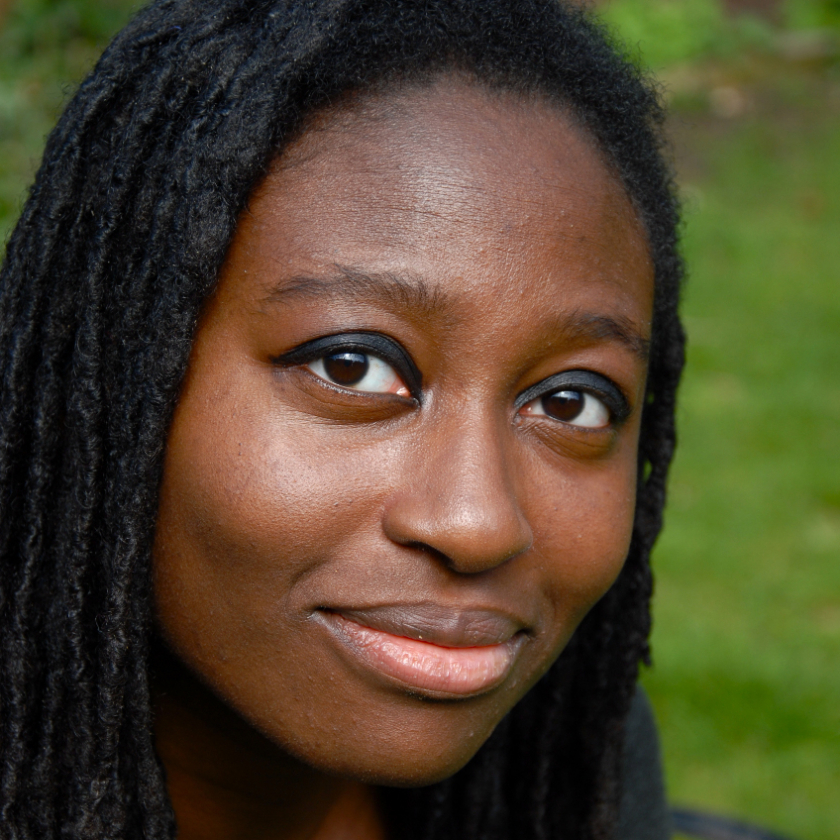Take a look at previous What We’re Reading blogs for more reading inspiration.
Love in Colour by Bolu Babalola
Every story in this collection of love stories by Bolu Babalola has been adapted from ancient folklore from all around the world. Babalola chooses to centre women in these stories, giving the women unique and passionate perspectives on love. While the original folktales may have been misogynistic and may have mirrored patriarchy, Babalola’s evocative collection does the opposite. In these stories we see women championed, given agency and finally be the protagonist in their own love stories.
The Princess Trap by Talia Hibbert
Romance is a genre I haven’t really ventured into (not since I was in Uni). The lack of diverse and unrealistic storylines always kept me at bay. Talia Hibbert’s writing, on the other hand, not only brings to life contemporary storylines but also shows brown and black women falling in love! Romantic screen comedies need to take a page out of Talia Hibbert’s books. The Princess Trap takes a familiar romance storyline, body positivity and adds an interracial romance to make a fun and easy read.
No Place to Call Home by JJ Bola
Reading JJ Bola’s debut novel, it is clear he is a poet. Bola records a tale of human experience that is often ignored within the UK. With vivid descriptions and heartfelt storytelling, you are transported into every location that the characters move through. The novel touches upon ideas of otherness and provides a welcome sense of belonging for those of that grew up in different places.
Afshan D’Souza-Lodhi, Programme Manager
My Darling from the Lions by Rachel Long
I’m reading Rachel Long’s debut collection My Darling from the Lions. Rachel Long is a poet and the founder of Octavia Poetry Collective for Womxn of Colour.
Her poems are brutal, she starts with an image or a sentence, then over the following lines unpacks it and deconstructs it, and then smacks you in the face with the conclusion. The collection is surprising, keeping you on your toes as a reader, and throughout the voice of the poet comes through clearly – it’s intimate, but at arm’s length. Long’s poems are familial, at times you feel you’ve been invited to the family dinner table as her parents shout to each other from different rooms. By the end of the collection your brain has been taken out and given a good scrub. I highly recommend it.
Harriet Williams, Programme Manager
Queenie by Candice Carty-Williams
This book has taken the UK publishing scene by storm, winning book of the year at the British Book Awards, and it is easy to see why.
Queenie is a young woman figuring out her place in the world in this coming of age story. Carty-Williams brings to life Queenie’s experiences as a Black British woman in London and her characters are vivid and memorable - Queenie’s Jamaican grandmother particularly sticks out in my mind.
The protagonist’s vulnerabilities and mental health issues are explored sensitively, and I felt her pain as she made mistakes (particularly when it comes to relationships). However, Queenie’s inspirational resilience, and the warm and ongoing support from (most of) her friends, along with the many laugh-out-loud moments meant my overwhelming sense of the book and the character is one of delight. Highly recommended.
Sinead Russell, Director Literature
Palace of the Peacock by Wilson Harris
Running recklessly through a second-hand bookshop last month, delighted to return after months of lockdown, I picked up this novel on a whim. I’m so glad I did.
Published in 1960 after Harris moved to London from the Caribbean, it takes place somewhere between dreaming and waking, between life and death, or perhaps between reality, myth and fantasy. In it, a group of men – ‘one spiritual family … knotted together in the enormous bruised head of ancestry’ – journey upriver to Mariella under the ‘dewy cold tears’ of the Guyanese forest. Their boat may have sunk already; they may be missionaries, or on a slavery mission; Mariella may be both a woman and a place.
I would say it’s a novel of uncertainties, but reading it I felt certain that Harris’s voice – lyrical, assured, and evocative – was in complete control of its challenge to western realism. At times I thought of Helen Oyeyemi’s The Opposite House: a novel where nothing is simply one thing and nobody simply one body. It left me keen to read more by Harris – or by authors who share his style and ideas.
Swithun Cooper, Research and Information Manager
What have you been reading lately? Share your recommendations with us on twitter.


